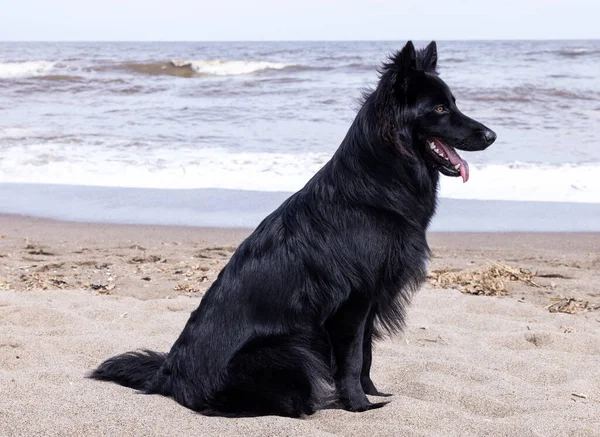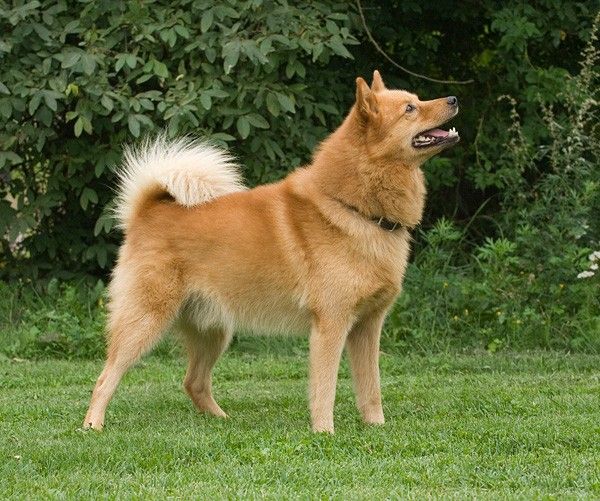The Belgian Sheepdog is an elegant and intelligent herding dog that has gained popularity among dog enthusiasts. Known for its striking appearance and exceptional intelligence, the Belgian Sheepdog is a versatile working breed that excels in various roles, including herding, search and rescue, and as a loyal companion. In this article, we will explore the fascinating characteristics, history, and training requirements of the Belgian Sheepdog, highlighting why it is a beloved choice for both working professionals and families alike.
History and Origin of the Belgian Sheepdog
Belgian Sheepdog’s origins
The Belgian Sheepdog, also known as the Groenendael, is a breed of herding dog that originated in Belgium. It is one of the four varieties of Belgian Shepherd dogs, with the other three being the Malinois, Tervuren, and Laekenois. The breed’s origins can be traced back to the late 19th century when Belgian shepherds started selectively breeding dogs for their herding abilities and intelligence.
Development of the breed
The Belgian Sheepdog was developed through careful breeding practices to create a dog that excelled in herding livestock. Breeders focused on selecting dogs with strong herding instincts, intelligence, and agility. Over time, the breed evolved to possess the desired traits and characteristics that make it an exceptional herding dog.
During the breed’s development, breeders also paid attention to the dog’s physical attributes. The Belgian Sheepdog is known for its elegant appearance, characterized by a well-proportioned body, a proud head carriage, and a thick double coat that provides protection in various weather conditions. The breed’s striking black coat and its alert expression add to its overall regal and majestic appearance.
Recognition by kennel clubs
The Belgian Sheepdog gained recognition by various kennel clubs over the years. The breed was first recognized by the Société Royale Saint-Hubert in Belgium, the country’s national kennel club, in the late 19th century. In 1911, the Belgian Sheepdog was officially recognized by the American Kennel Club (AKC) and was registered as a member of the herding group.
Since then, the breed’s popularity has grown, and it has gained recognition from other prominent kennel clubs worldwide. Today, the Belgian Sheepdog is recognized by major kennel clubs such as the United Kennel Club (UKC), the Canadian Kennel Club (CKC), and the Fédération Cynologique Internationale (FCI).
The recognition of the Belgian Sheepdog by these kennel clubs further solidifies its status as a valued and reputable breed. It serves as a testament to the breed’s exceptional herding abilities, intelligence, and overall contribution to the world of working dogs.
In conclusion, the Belgian Sheepdog’s history and origin can be traced back to Belgium, where it was selectively bred for its herding abilities. Through careful breeding practices, the breed evolved to possess the desired traits and characteristics. The Belgian Sheepdog’s recognition by kennel clubs worldwide highlights its significance as an elegant and intelligent herding dog.
Physical Characteristics
Size and Appearance
The Belgian Sheepdog is a medium to large-sized dog breed with a strong and athletic build. Males typically measure between 24 to 26 inches at the shoulder, while females are slightly smaller, ranging from 22 to 24 inches. They have a well-proportioned body with a square-shaped structure, giving them an elegant and graceful appearance.
Coat and Color
One of the most striking features of the Belgian Sheepdog is its luxurious coat. They have a double coat, consisting of a dense and weather-resistant undercoat and a long, straight outer coat. The outer coat is abundant, giving them a regal and majestic look. Their coat requires regular brushing to prevent matting and to keep it in optimal condition.
In terms of color, Belgian Sheepdogs are commonly found in rich shades of black. However, some may have a small amount of white on their chest or toes. The dark color of their coat not only enhances their elegance but also provides them with excellent camouflage when herding or working in the field.
Distinctive Features
Apart from their stunning appearance, Belgian Sheepdogs have several distinctive features that set them apart from other herding dog breeds. One of their most notable features is their intelligent and alert expression, which showcases their high level of attentiveness and readiness to work.
Additionally, Belgian Sheepdogs have a well-developed muzzle and strong jaws, enabling them to perform their herding duties efficiently. Their almond-shaped, dark brown eyes are also quite expressive, reflecting their intelligence and sensitivity.
Another characteristic that distinguishes Belgian Sheepdogs is their agile and light-footed movement. They possess a natural grace and fluidity in their gait, allowing them to swiftly maneuver and change direction while herding or participating in dog sports.
In summary, the Belgian Sheepdog’s physical characteristics contribute to its overall elegance and intelligence. From their size and appearance to their coat and distinctive features, they are truly a captivating and remarkable herding dog breed.
Temperament and Personality
The Belgian Sheepdog is known for its remarkable temperament and personality. This breed is highly regarded for being alert, confident, and highly energetic. They possess a strong work ethic and are always ready to take on any task or challenge.
Intelligence and Trainability
One of the standout traits of the Belgian Sheepdog is its exceptional intelligence. They are quick learners and highly trainable, which makes them ideal for various roles such as herding, search and rescue, and obedience competitions. This breed thrives on mental stimulation and enjoys tasks that challenge their intellect.
Herding Instincts
As a herding dog, the Belgian Sheepdog has a natural instinct for herding livestock. They possess a keen sense of awareness and are known for their ability to control and move herds with precision. These instincts make them excellent working dogs in agricultural settings, as they can effectively round up and guide livestock.
Loyalty and Protective Nature
The Belgian Sheepdog is renowned for its unwavering loyalty and protective nature towards its family and territory. They are highly devoted and form strong bonds with their owners. This breed is always alert and will readily defend their loved ones if they perceive any threats. Their protective instincts make them excellent guard dogs, as they will not hesitate to act if their family’s safety is at risk.
Care and Grooming
Exercise and Activity Needs
Belgian Sheepdogs are active and energetic dogs that require regular exercise to keep them happy and healthy. They have a lot of energy to burn, so providing them with plenty of physical and mental stimulation is essential. Daily walks, jogs, or play sessions in a secure, fenced yard are great ways to meet their exercise needs. Engaging them in activities like obedience training, agility, and even herding trials can help keep their minds sharp and provide the necessary physical outlet for their high energy levels.
Grooming Requirements
The Belgian Sheepdog has a luxurious double coat that requires regular grooming to keep it in top condition. They have a dense and weather-resistant undercoat, along with a long and straight outer coat. To prevent matting and keep their coat healthy, they should be brushed at least two to three times a week. During shedding seasons, which occur twice a year, more frequent brushing may be necessary to remove the loose and dead hairs.
In addition to regular brushing, Belgian Sheepdogs should have their nails trimmed regularly to prevent them from becoming too long and causing discomfort. Their ears should also be checked and cleaned regularly to prevent any infections, as their long hair can trap dirt and moisture. Dental care is equally important, and their teeth should be brushed regularly to maintain good oral hygiene and prevent dental issues.
Health Considerations
Like all dog breeds, Belgian Sheepdogs are prone to certain health conditions. It is crucial to be aware of these potential health concerns and take appropriate measures to ensure their well-being. Some of the common health issues that may affect Belgian Sheepdogs include hip dysplasia, progressive retinal atrophy (PRA), epilepsy, and thyroid problems.
Regular veterinary check-ups are essential to detect any health issues early on and provide prompt treatment if needed. Maintaining a balanced diet, regular exercise, and proper grooming can also contribute to their overall health and well-being. By being proactive in their care, you can help ensure that your Belgian Sheepdog lives a long, happy, and healthy life.
Training and Obedience
Importance of early socialization
Early socialization is vital for Belgian Sheepdogs to ensure they develop into well-rounded and confident dogs. By exposing them to various people, animals, and environments during their critical developmental period, typically between 3 to 14 weeks of age, we can help them become comfortable and adaptable in different situations. This early socialization helps prevent behavioral issues such as fear, aggression, and anxiety later in life.
To properly socialize a Belgian Sheepdog puppy, it is important to introduce them to different sounds, sights, smells, and experiences in a positive and controlled manner. This can include taking them for walks in busy areas, allowing them to interact with other friendly dogs, and exposing them to various household objects. Enrolling them in puppy socialization classes can also be highly beneficial, as it provides a safe environment for them to interact with other puppies and learn appropriate social skills.
Basic obedience training
Basic obedience training is an essential foundation for every Belgian Sheepdog. It establishes clear communication between the dog and their owner, ensuring that they understand and follow basic commands. This not only enhances the bond between the dog and their owner but also promotes good behavior and prevents potential problems.
During basic obedience training, Belgian Sheepdogs should be taught fundamental commands such as “sit,” “stay,” “come,” “down,” and “heel.” Positive reinforcement techniques, such as treats, praise, and play, should be used to reward and motivate the dog. Consistency, patience, and repetition are key to successful training. Training sessions should be short, engaging, and conducted in a distraction-free environment.
Advanced training and activities
Belgian Sheepdogs are known for their intelligence and versatility, making them highly trainable in advanced obedience and various activities. Once they have mastered basic obedience, it is beneficial to continue their training to keep their minds stimulated and prevent boredom.
Advanced training for Belgian Sheepdogs can include complex commands, such as retrieving specific objects, performing tricks, and mastering off-leash obedience. Additionally, engaging them in activities like agility, tracking, herding, and scent work can provide both mental and physical stimulation. These activities not only showcase their natural abilities but also strengthen the bond between the dog and their owner.
Remember that Belgian Sheepdogs thrive on mental and physical challenges, so regularly introducing new training exercises and activities is important to keep them happy and fulfilled.
In conclusion, training and obedience are crucial aspects of Belgian Sheepdog ownership. Early socialization sets the foundation for a well-adjusted dog, while basic obedience training establishes effective communication. Advanced training and activities further enhance their skills and provide mental stimulation. By investing time and effort in training, Belgian Sheepdog owners can enjoy a harmonious and fulfilling relationship with their elegant and intelligent herding dogs.
Suitability as a Working Dog
The Belgian Sheepdog is renowned for its exceptional suitability as a working dog due to its intelligence, agility, and natural herding instincts. This breed’s remarkable abilities make it highly sought after in various working roles and competitions.
Herding abilities
Belgian Sheepdogs excel in their primary role as herding dogs. With their innate herding instincts, they possess the necessary skills to control and move livestock efficiently. Their strong drive, focus, and quick reflexes enable them to navigate challenging terrains and effectively guide sheep or cattle. These dogs are known for their ability to anticipate the movements of livestock, making them indispensable on farms and ranches.
Other working roles
Beyond their herding capabilities, Belgian Sheepdogs are versatile and adaptable, making them well-suited for a range of other working roles. Due to their intelligence and trainability, they excel in jobs that require problem-solving, obedience, and precision. They can easily trained as search and rescue dogs, tracking dogs, police dogs, and even therapy dogs.
In search and rescue operations, Belgian Sheepdogs showcase their exceptional scenting abilities, allowing them to locate missing persons or survivors in various terrains and conditions. Their agility and determination make them ideal for tracking tasks, where they follow scents left by individuals or animals. Additionally, their loyalty, courage, and protective instincts make them valuable assets in law enforcement, as they can apprehend suspects and provide security.
Belgian Sheepdogs also make remarkable therapy dogs, providing comfort and emotional support to individuals in hospitals, nursing homes, or schools. Their gentle nature, obedience, and willingness to please make them ideal companions for those in need.
Working dog competitions
Belgian Sheepdogs are frequently seen participating and excelling in various working dog competitions. These events provide a platform to showcase their skills, athleticism, and intelligence. Competitions such as obedience trials, agility courses, herding trials, and protection sports allow these dogs to demonstrate their versatility and working capabilities.
In obedience trials, Belgian Sheepdogs showcase their ability to follow commands promptly and accurately. They exhibit their high level of training, focus, and discipline as they perform a series of tasks and exercises.
Agility courses test the agility, speed, and accuracy of the Belgian Sheepdog as they navigate obstacles such as tunnels, weave poles, and jumps. Their athleticism and quick thinking allow them to maneuver through the course with finesse and precision.
Herding trials provide an opportunity for Belgian Sheepdogs to demonstrate their natural herding abilities. They are tasked with guiding livestock through various challenges and obstacles, showcasing their instinctual herding techniques and control.
Protection sports, such as Schutzhund or IPO, assess the Belgian Sheepdog’s ability to protect their handler and follow commands under intense situations. These competitions evaluate their obedience, courage, and defensive skills.
Belgian Sheepdog’s suitability as a working dog is unparalleled. Whether in herding livestock, fulfilling various working roles, or excelling in working dog competitions, they consistently showcase their intelligence, versatility, and exceptional abilities. Their unwavering loyalty and dedication make them an excellent choice for individuals or organizations seeking a reliable and capable working dog.
The Belgian Sheepdog is a remarkable breed that showcases elegance, intelligence, and exceptional herding abilities. With its striking appearance and versatile skills, it has become a beloved companion for many dog enthusiasts and farmers alike. This herding dog’s dedication, loyalty, and agility make it a perfect choice for various tasks, from guiding livestock to excelling in dog sports. Whether you are looking for a devoted family pet or a working partner, the Belgian Sheepdog is sure to impress with its unwavering devotion and remarkable capabilities.







